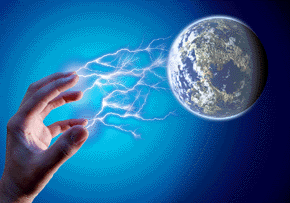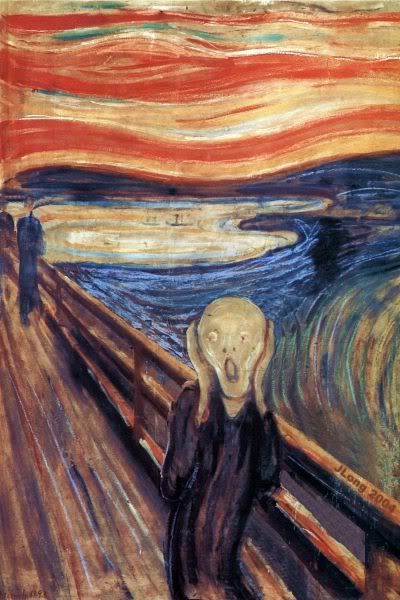
Originally Posted by
hsmithson 
In discussions about fine-tuning/design, it is usually taken for granted that God would want to create stuff. But it doesn’t seem obvious to me that he would want to create anything. Outside of pointing to a specific theology (which seems kind of question-begging), how could we possibly know what God’s preferences are when it comes to creating versus not creating? Could we perhaps argue as follows?
(1) If God exists, then he would ensure that the best possible world exists.
(2) Because God is maximally great, the possible world containing God and nothing else is the best possible world.
(3) Therefore, if God exists, he would not create anything.
I don’t have any real confidence in this argument, but I’m curious how people would object to it. And aside from the argument's success/failure, I’m curious how we can know whether or not God would create stuff.
That's just tailor made to find fault with God. set up your own expectations which obviously haven't been met, then you can blame God for not meeting them.
You are also assuming God is like a big man becuase you seem him as building contractor in the sky. He has to have a man's style of rational reason for doing something, he's gonna do it in a way that you can understand and approve. There's no reason to assume that.
You don't even understand all human motivations for doing things. if God were a big artist in the sky he might create for a pure reason of artistic creativity. Could you relate to that? Could you call it a failure?
The basic assumption in p1 is basically utilitarian at least. That's going to be a major assumption that most atheists will make. It's assumes the only consideration God has to work with is pleasure over pain. It also assumes there can't be any higher goal than avoiding pain. Atheits are often asking things like "why God just ignore sin? why can't God just give amnesty and everyone enjoy themselves?" This assumes there's no higher reason than pleasure over pain.
In my view God created becuase he wanted free moral agents who willing choose the good. That's why he constructs a world that is morally neutral and that doesn't give off obvious indications of having been created. That way we have to seek truth and come to a conclusion about why we are here and the existence of God.
He's left obvious clues that set us on the right path if we are to seek with he heart. If what I'm saying is true the real challenge is to find what it means to seek with the heart. This has a close bearing on my free will defense. Atheists most often ask why did God create so they can charge God with being absent since the world is so screwed up. The answer to that is the free will defense.
Let's examine my basic assumptions in making this arguemnt, and I will show how I use it to answer arguments about why does God allow pain and evil?
Basic assumptions There are three basic assumptions that are hidden, or perhaps not so obivioius, but nevertheless must be dealt with here.
(1) The assumption that God wants a "moral universe" and that this value outweighs all others.
The idea that God wants a moral universe I take from my basic view of God and morality. Following in the footsteps of Joseph Fletcher (Situation Ethics) I assume that love is the background of the moral universe (this is also an Augustinian view). I also assume that there is a deeply ontological connection between love and Being. Axiomatically, in my view point, love is the basic impetus of Being itself. Thus, it seems reasonable to me that, if morality is an upshot of love, or if love motivates moral behavior, then the creation of a moral universe is essential.
(2) that internal "seeking" leads to greater internalization of values than forced compliance or complaisance that would be the result of intimidation.
That's a pretty fair assumption. We all know that people will a lot more to achieve a goal they truly beileve in than one they merely feel forced or obligated to follow but couldn't care less about.
(3)the the drama or the big mystery is the only way to accomplish that end.
The pursuit of the value system becomes a search of the heart for ultimate meaning,that ensures that people continue to seek it until it has been fully internalized.
The argument would look like this:
(1)God's purpose in creation: to create a Moral Universe, that is one in which free moral agents willingly choose the Good.
(2) Moral choice requires absolutely that choice be free (thus free will is necessitated).
(3) Allowance of free choices requires the risk that the chooser will make evil choices
(4)The possibility of evil choices is a risk God must run, thus the value of free outweighs all other considerations, since without there would be no moral universe and the purpose of creation would be thwarted.
This leaves the atheist in the position of demanding to know why God doesn't just tell everyone that he's there, and that he requires moral behavior, and what that entails. Thus there would be no mystery and people would be much less inclined to sin.
This is the point where Soteriological Drama figures into it. Argument on Soteriological Drama: (5) Life is a "Drama" not for the sake of entertainment, but in the sense that a dramatic tension exists between our ordinary observations of life on a daily basis, and the ultimate goals, ends and purposes for which we are on this earth.
(6) Clearly God wants us to seek on a level other than the obvious, daily, demonstrative level or he would have made the situation more plain to us
(7) We can assume that the reason for the "big mystery" is the internalization of choices. If God appeared to the world in open objective fashion and laid down the rules, we would probably all try to follow them, but we would not want to follow them. Thus our obedience would be lip service and not from the heart.
(8) therefore, God wants a heart felt response which is internationalized value system that comes through the search for existential answers; that search is phenomenological; introspective, internal, not amenable to ordinary demonstrative evidence.
In other words, we are part of a great drama and our actions and our dilemmas and our choices are all part of the way we respond to the situation as characters in a drama.
This theory also explains why God doesn't often regenerate limbs in healing the sick. That would be a dead giveaway. God creates criteria under which healing takes place, that criteria can't negate the overall plan of a search.
Objection: One might object that this couldn't outweigh babies dying or the horrors of war or the all the countless injustices and outrages that must be allowed and that permeate human history. It may seem at first glance that free will is petty compared to human suffering. But I am advocating free will for the sake any sort of pleasure or imagined moral victory that accrues from having free will, it's a totally pragmatic issue; that internalizing the value of the good requires that one choose to do so, and free will is essential if choice is required. Thus it is not a capricious or selfish defense of free will, not a matter of choosing our advantage or our pleasure over that of dying babies, but of choosing the key to saving the babies in the long run,and to understanding why we want to save them, and to care about saving them, and to actually choosing their saving over our own good.
In deciding what values outweigh other values we have to be clear about our decision making paradigm. From a utilitarian standpoint the determinate of lexically ordered values would be utility, what is the greatest good for the greatest number? This would be determined by means of outcome, what is the final tally sheet in terms of pleasure over pain to the greatest aggregate? But why that be the value system we decide by? It's just one value system and much has been written about the bankruptcy of consequentialist ethics. If one uses a deontological standard it might be a different thing to consider the lexically ordered values. Free will predominates because it allows internalization of the good. The good is the key to any moral value system. This could be justified on both deontolgoical and teleological premises.
My own moral decision making paradigm is deontological, because I believe that teleological ethics reduces morality to the decision making of a ledger sheet and forces the individual to do immoral things in the name of "the greatest good for the greatest number." I find most atheists are utilitarians so this will make no sense to them. They can't help but think of the greatest good/greatest number as the ultimate adage, and deontology as empty duty with no logic to it. But that is not the case. Deontology is not just rule keeping, it is also duty oriented ethics. The duty that we must internalize is that ultimate duty that love demands of any action. Robots don't love. One must freely choose to give up self and make a selfless act in order to act from Love. Thus we cannot have a loved oriented ethics, or we cannot have love as the background of the moral universe without free will, because love involves the will.
The choice of free will at the expense of countless lives and untold suffering cannot be an easy thing, but it is essential and can be justified from either deontolgoical or teleological perspective. Although I think the deontologcial makes more sense. From the teleological stand point, free will ultimately leads to the greatest good for the greatest number because in the long run it assumes us that one is willing to die for the other, or sacrifice for the other, or live for the other. That is essential to promoting a good beyond ourselves. The individual sacrifices for the good of the whole, very utilitarian. It is also deontolgocially justifiable since duty would tell us that we must give of ourselves for the good of the other.
Thus anyway you slice it free will outweighs all other concerns because it makes available the values of the good and of love. Free will is the key to ultimately saving the babies, and saving them because we care about them, a triumph of the heart, not just action from wrote. It's internalization of a value system without which other and greater injustices could be foisted upon an unsuspecting humanity that has not been thought to choose to lay down one's own life for the other.
Objection 2: questions(from "UCOA" On CARM boards (atheism)
Quote:
In addition, there is no explanation of why god randomly decided to make a "moral universe".
Why do you describe the decision as random? Of course all of this is second guessing God, so the real answer is "I don't know, duh" But far be it form me to give-up without an opinion. My opinion as to why God would create moral universe:
to understand this you must understand my view of God, and that will take some doing. I'll try to just put it in a nut shell. In my view love is the background of the moral universe. The essence of "the good" or of what is moral is that which conforms to "lug." But love in the apogee sense, the will to the good of the other. I do not believe that that this is just derived arbitrarily, but is the outpouring of the wellspring of God's character. God is love, thus love is the background of the moral universe because God is the background of the moral universe.
Now I also describe God as "being itself." Meaning God is the foundation of all that is. I see a connection between love and being. Both are positive and giving and turning on in the face of nothingness, which is negativity. To say that another way, if we think of nothingness as a big drain pipe, it is threatening to **** all that exits into it. Being is the power to resist nothingness, being the stopper in the great cosmic drain pipe of non existence.
The act of bestowing being upon the beings is the nature of God because God is being. Those the two things God does because that's what he is, he "BES" (um, exists) and he gives out being bestowing it upon other beings. This is connected to love which also gives out and bestows. So being and love are connected, thus the moral universe is an outgrowth of the nature of God as giving and bestowing and being and loving.
Quote:
Thus the question isn't really answered. Why does god allow/create evil? To create a "moral universe". Why? The only answer that is given is, because he wants to. Putting it together, Why does god allow/create evil? Because he wants to?
In a nut shell, God allows evil as an inherent risk in allowing moral agency. (the reason for which is given above).
There is a big difference in doing something and allowing it to be done. God does not create evil, he allows the risk of evil to be run by the beings, because that risk is required to have free moral agency. The answer is not "because he wants to" the answer is because he wants free moral agency so that free moral agents will internalize the values of love. To have free moral agency he must allow them to:
(1)run the risk of evil choices
(2) live in a real world where hurt is part of the dice throw.
see my answers to atheist attacks on this idea in my essay:
"Twelve Angry Stereotypes"




